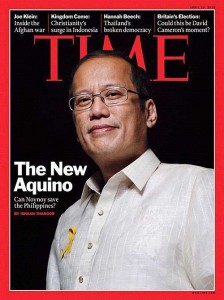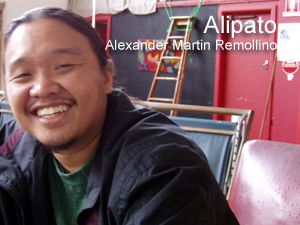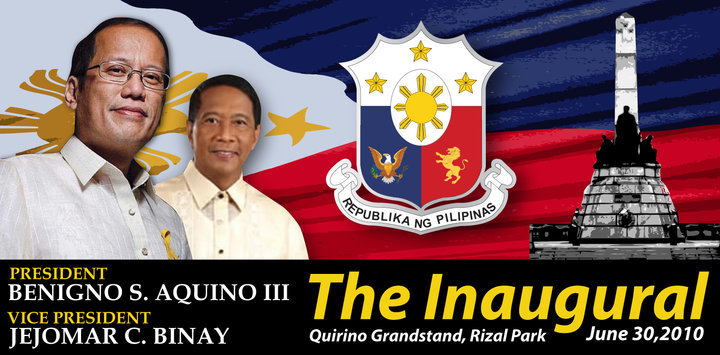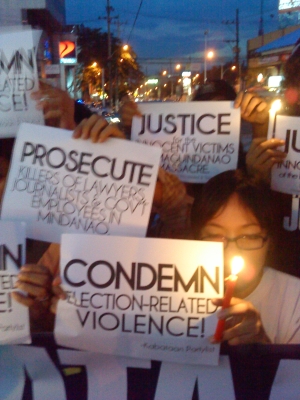The prestigious Titus Brandsma Award Philippines on Nov. 27 honored multimedia journalist Raymund B. Villanueva for “emergent leadership […]
Category: Journalism

On September 12, President Benigno S. Aquino III signed into law Republic Act 10175, otherwise known as the Cybercrime Prevention Act of 2012.
No doubt about it: Congress – through the House of Representatives, the Senate and the bicameral conference committee – proposed, drafted and finalized the text of the document. The responsibility of Congress ended when the bill was transmitted to and received by the Office of the President for whatever action he wishes to take.
Mr. Aquino could have vetoed the bill.
Referring to extrajudicial killings and the killing of journalists in the Philippines in his July, 2010 State of the Nation Address, President Benigno Aquino III declared that his administration would “hold murderers accountable.”
Despite that pledge, six journalists have been killed since then, or a total of ten since the Ampatuan Massacre of November 23, 2009 claimed the lives of 58 men and women, of whom 32 were journalists and media workers.

In addition to the killings that have continued in the Aquino administration, a number of community journalists have also been threatened, sued for libel on the flimsiest grounds, barred from attending interviews and press conferences, and physically assaulted. In a recent incident, unidentified persons also burned a Catholic Church-owned radio station in Occidental Mindoro. All are indicative of a state of mind among those who want to silence the press that could, in the present circumstances, lead to murder.

Over 500 days have passed since Benigno Aquino III assumed the presidency on a pro-change platform – but families of victims of extrajudicial killings have been made to wait and to wait longer for presidential action needed to spur decisive action by government.
The administration has not done anything meaningful to address the political killings that were an indelible mark on the previous administration. A few statements in speeches, yes. But compelling action, nada.

The International Committee of the Red Cross (ICRC) in the Philippines and its partners including the Peace and Conflict Journalism Network announced the winners of the first Red Cross Award for Humanitarian Reporting today, May 7, a day before Red Cross Day, at the Richmonde Hotel in Pasig City.
Here is the list of winners:

Friends from PECOJON invited me to speak at the forum and awarding of winners in the Red Cross Award for Humanitarian Reporting. The forum and contest revolved around humanitarian reporting, about journalism in the midst of conflict.
I was asked to speak on social media, and below are the thoughts that I chose to share, out of many ideas that popped in my head:
Bullet Points on Social Media and Social Conflict
by Tonyo CruzHere are various definitions of social media, culled from various sources:
“Social media is a type of online media that expedites conversation as opposed to traditional media, which delivers content but doesn’t allow readers/viewers/listeners to participate in the creation or development of the content.”

The Philippines reels after the violent end to the August 23 hostage crisis at Quirino Grandstand which killed several hostages and injured others. The hours-long saga was broadcast live on television and radio and kept the country, the world and perhaps even the hostage-taker informed of what was happening and not happening. Live media coverage has been dubbed as a negative factor in the crisis.
About media’s role in such situations, the country’s leading journalists’ organization issued this statement today:
To mark the inaugural of President Benigno Simeon “Noynoy” Cojuangco Aquino and Vice President Jejomar “Jojo” Cabauatan Binay, here are complete links on the ceremonies, the personalities, the citizen journalism and mainstream media coverage and other pertinent you may need:
Alan Soon, Yahoo! Southeast Asia managing editor, today spoke at the Yahoo! Philippines forum on social media and shared his insights on the role of social media in the elections and in news-gathering.
In his talk titled “The NOW revolution”, Soon shared his eight tips for covering the elections, the social media way:
The nation is still in a state of shock over the grisly Maguindanao massacre. With the Arroyo government dragging its feet even in the face of nationwide and international uproar, several groups and individuals met over the weekend and formed the November 23 Movement.
Below is their joint statement which they hope would be published in newspapers across the country on Dec. 1:

Today’s newspapers appear to have one thing on common: They are all happy for newly-wed couple Liberal Party vice presidential candidate Sen. Mar Roxas II and ABS-CBN chief correspondent Korina Sanchez.
Photos from yesterday’s wedding rites dominate most today’s frontpages:
This is long overdue.
Journalists and other members of the media who cover the elections, especially Election Day, should be able to vote through absentee voting.
Normally, reporters start their work on the eve of the elections and have no time to join their families in going to their polling precinct to cast votes. The irony is that they report about the elections where they have no direct participation as voters. Perhaps the only time they can vote is when they actually run for office because by then they have time to do so. But working journalists don’t have such opportunity.
 Another group has come forward to recognize the role of bloggers in raising public awareness on important issues.
Another group has come forward to recognize the role of bloggers in raising public awareness on important issues.
Bloggers are now welcome to join the 5th PopDev Media Awards, a project of Philippine Legislators’ Committee on Population and Development (PLCPD).
This is open to all Filipino bloggers who have blogged about any of the following issues: issues such as the Millennium Development Goals (MDGs), International Conference on Population and Development (ICPD), public health (especially reproductive health), reproductive health policy and governance, economic growth and poverty, climate change, housing and urban development, sustainable development, environment, education, gender, maternal health, adolescent reproductive health, family planning, food security, reproductive rights, migration, and population ageing.
The topics are as broad as they can be and this is good news to bloggers.
For more information, please refer to the PLCPD’s press release below:
It is taken for granted or regarded lightly, but the relative freedom we enjoy in expressing ourselves through is heaven compared to the hell experienced by bloggers in other countries.
In naming the “worst online oppressors”, the Committee to Protect Journalists (CPJ) notes that “booming online cultures in many Asian and Middle Eastern nations have led to aggressive government repression”.
Today is World Press Freedom Day.
It should be a happy day for the Philippines, considering that we always boast of having the freest press in Asia, but
Is it illegal for a labor activist to visit the Philippines?
The Philippine government yesterday deported a visiting Japanese activist who was supposed to join an annual international labor conference, with immigration authorities allegedly claiming that it was done on request of the Japanese embassy.
Kilusang Mayo Uno, which sponsors the annual event, reported the incident in this statement.
Stopping short of banning travel to Mexico, the Department of Foreign Affairs today asked Filipinos going to Mexico “to avoid large crowds, shaking hands, kissing people as a greeting, and using the subway” citing the swine flu outbreak in the country.
The DFA also announced that government will be closely monitoring arrivals from the US and Mexico.
Trina Etong, wife of popular broadcaster and former congressman Ted Failon, died last night from the gunshot wound on her head. Her body has been brought to Arlington funeral homes.
Two representatives of the New York-based Committee to Protect Journalists (CPJ) today unveiled in Manila its Global Impunity Index 2009 that tracks the number of journalists killed in the line of duty, with senior officials sharply criticizing President Arroyo’s government for the failure to stop and solve the murders.
This year’s report is being released in Manila to mark the fourth anniversary of the murder of Marlene Garcia-Esperat, a Philippine columnist who reported on corruption in the government’s agriculture department. Garcia-Esperat was gunned down in her home in front of her family in a case that has become emblematic of the struggle against impunity. Two government officials are accused of ordering her murder.
Please visit the Daily PCIJ blog of the Philippine Center for Investigative Journalism for my guest blog post there titled ‘A trail of bodies, unsolved killings’.
Excerpt:



 As soon as details started to come out from the terrible
As soon as details started to come out from the terrible